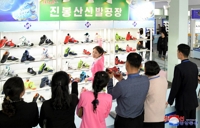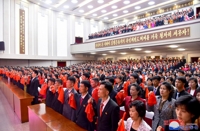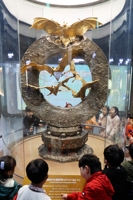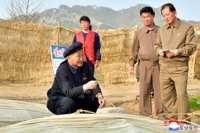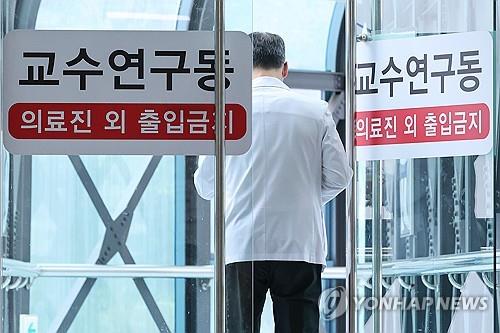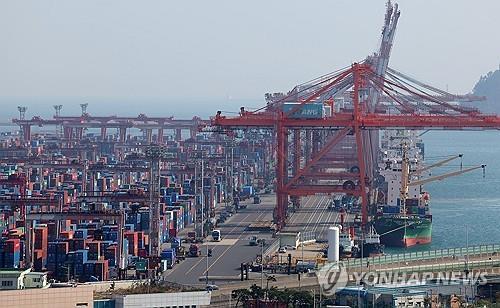(2nd LD) Dozens of church-linked infections rekindle virus fears in capital area
(ATTN: ADDS details in 5th para, last two paras, photo)
By Lee Minji
SEOUL, June 2 (Yonhap) -- A spike in new coronavirus infections traced to small Protestant churches and gatherings have rekindled fears over possible spread of the virus through the densely-populated greater Seoul area.
While cases coming from the two biggest clusters in the greater Seoul area -- nightclubs in the Seoul neighborhood of Itaewon and a logistics center in Bucheon, west of Seoul -- appear to be slowing, more than 70 cases have been reported as of Monday in relation to religious facilities and events since May.
Most of these cases are concentrated in the capital area that refers to Seoul, Incheon and Gyeonggi Province, which are home to around half of the country's population.
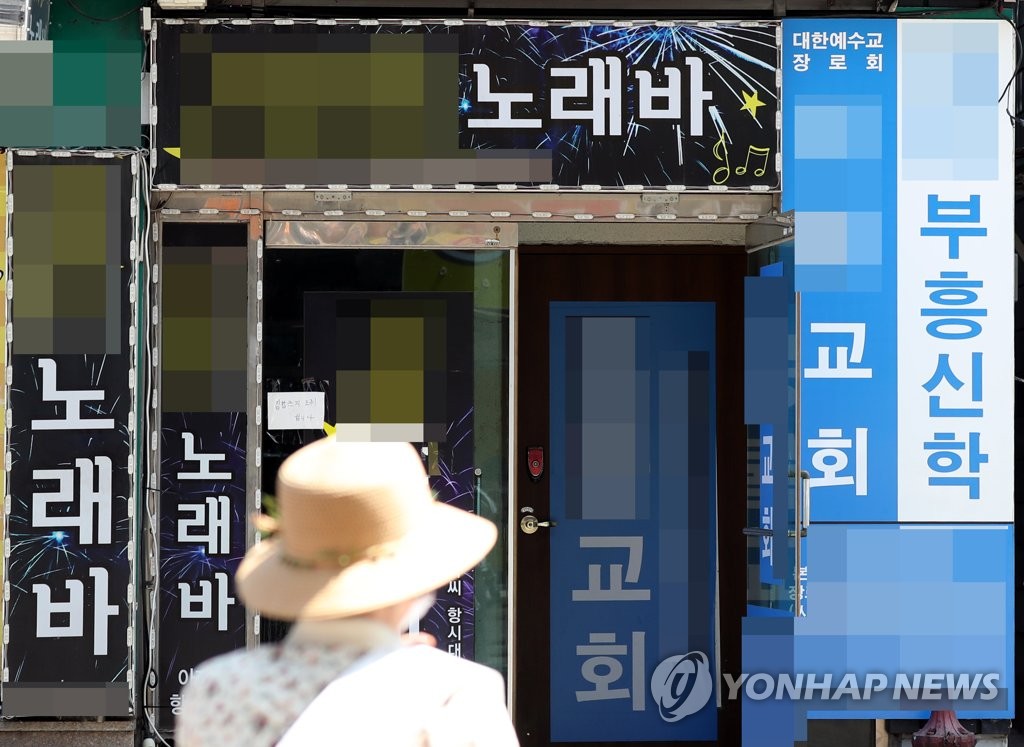
This photo, from June 1, 2020, shows a pedestrian in front of a church in Incheon, west of Seoul, where group infections have occurred among participants of a religious meeting. (Yonhap)
At least 45 cases have been traced to a small church in the Incheon ward of Michuhol, where pastors from Incheon and Gyeonggi Province took part in a bible study gathering, according to the Korean Centers for Disease Control and Prevention (KCDC).
A 57-year-old pastor who leads a church in the Incheon ward of Bupyeong is assumed to be a key transmitter in the case. The woman attended meetings at several churches in Incheon, but authorities have yet to identify her infection route.
The case has ballooned to a cluster involving 23 churches in the area, with lax hygiene habits -- such as not wearing face masks and people sitting close to one another -- suspected of worsening the case.
"Some 73 percent of participants ended up being infected as a small number of people gathered in a cramped area and sang hymns and prayed without wearing masks, according to a report by the Incheon city office," Sohn Young-rae, a senior health official, said in a briefing.
Some 71 percent of the participants did not show any symptoms in early stages, which may have prompted the virus to spread more quickly, Sohn added.
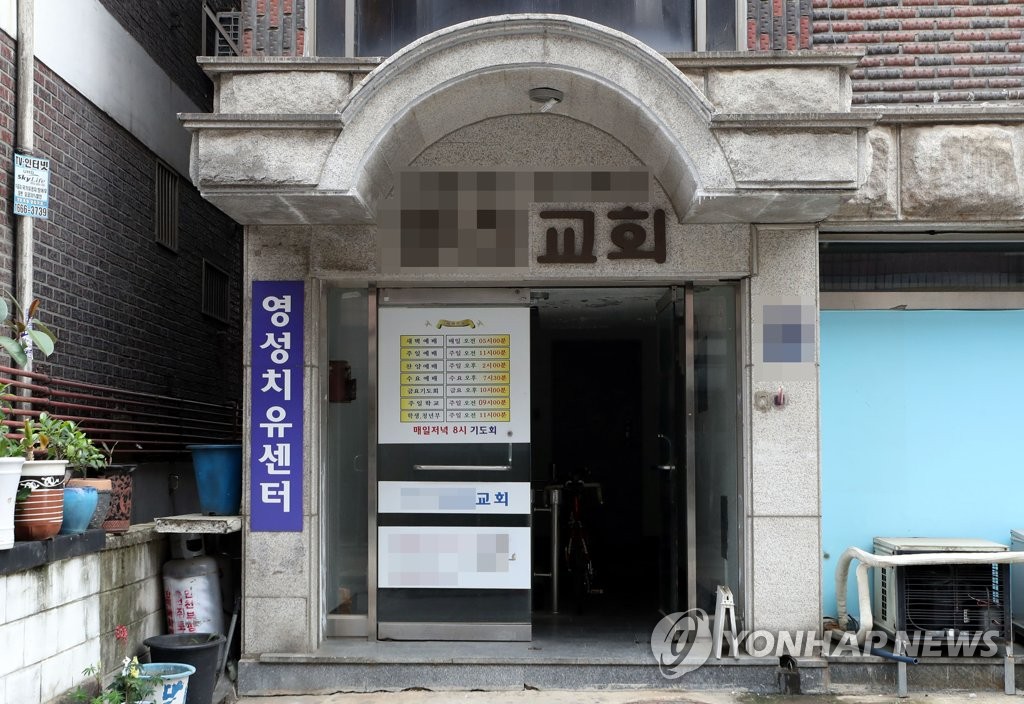
The entrance to a church in Incheon, west of Seoul, where a new coronavirus case was reported, is empty on June 2, 2020. (Yonhap)
Fifteen cases have been reported among pastors in Gunpo and Anyang, both south of Seoul, who visited the southern resort island of Jeju in a group trip late last month.
In Seoul, nine cases have been traced to a Christian university students group, while 11 cases have been reported in relation to a church in the southern neighborhood of Gangnam.
Fourteen infections were also reported in relation to a bible study meeting. One participant, in his 70s, has died, while another is in critical condition.
Most of the recent cases come from small churches and irregular religious meetings that were seen as relatively safe compared with mass Sunday services at the country's megachurches.
South Korea had earlier reported cases linked to one of Seoul's biggest churches in the eastern ward of Gangdong. It also took a hit from cases linked to the fringe religious sect of Shincheonji, which infected thousands of people mostly in the southeastern city of Daegu.
But while the experience has prompted bigger churches to shift to online services and tighten quarantine rules, such as limiting the number of worshipers and using quick response (QR)-based entry logs, small churches had been caught off guard.
What further raises concerns is that the cases involving pastors from different churches may lead to bigger outbreaks involving churchgoers of different age groups, including the elderly who are more prone to infection.
Another complication is that the current quarantine guidelines for religious meetings -- such as keeping a distance and designating a quarantine key man -- may not be sufficient to regulate meetings outside of regular worship sessions.
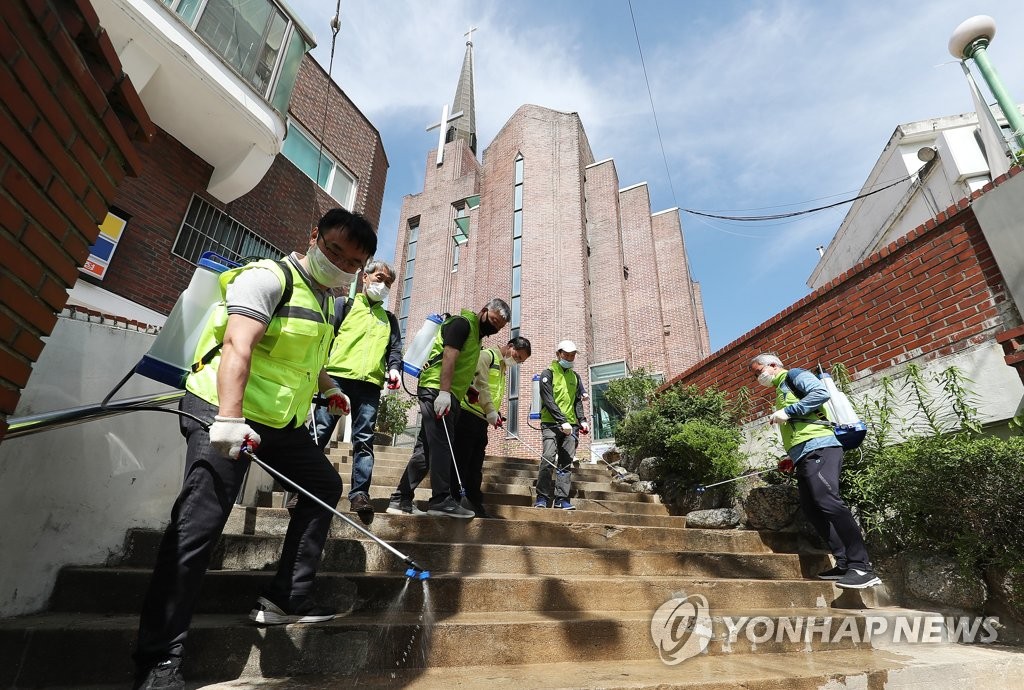
This photo, from June 1, 2020, shows health workers disinfecting a church in Suwon, south of Seoul, where infections occurred in relation to the Coupang logistics center in Bucheon, west of Seoul. (Yonhap)
Health authorities have urged churchgoers to refrain from face-to-face meetings until infection risks ease.
"(We advise) holding non-contact meetings instead of in-person bible studies, prayer meetings and group trips until infection risks fall in the capital area, where local transmissions are spreading," KCDC Director Jeong Eun-kyung said in a Monday press briefing.
Jeong said officials may have to resort to administrative measures if quarantine guidelines are not strictly followed.
The city of Incheon said it plans to tighten inspections of 4,234 religious facilities in its jurisdiction and is considering imposing a set of mandatory quarantine rules at such facilities.
Most churches in the country had suspended in-person Sunday services under the government's strict social distancing campaign. However, they began to resume in-person sessions as social distancing guidelines were eased from May 6.
South Korea has identified 38 more cases of the new coronavirus, including 36 local infections, raising the total caseload to 11,541 on Tuesday.
mlee@yna.co.kr
(END)
-
 S. Korea marks 30th anniv. of Korean Pavilion at Venice Biennale with contemporary art
S. Korea marks 30th anniv. of Korean Pavilion at Venice Biennale with contemporary art -
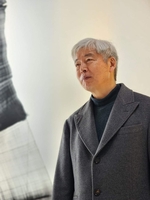 Artist Lee Bae captures ethereal Korean aesthetics at Venice Biennale
Artist Lee Bae captures ethereal Korean aesthetics at Venice Biennale -
 Ateez member Yunho throws first pitch at MLB match between Dodgers, Mets
Ateez member Yunho throws first pitch at MLB match between Dodgers, Mets -
 Gov't likely to accept university chiefs' request to lower med school enrollment quota
Gov't likely to accept university chiefs' request to lower med school enrollment quota -
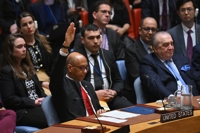 S. Korea supports resolution backing U.N. membership of Palestine
S. Korea supports resolution backing U.N. membership of Palestine
-
 Artist Lee Bae captures ethereal Korean aesthetics at Venice Biennale
Artist Lee Bae captures ethereal Korean aesthetics at Venice Biennale -
 S. Korea marks 30th anniv. of Korean Pavilion at Venice Biennale with contemporary art
S. Korea marks 30th anniv. of Korean Pavilion at Venice Biennale with contemporary art -
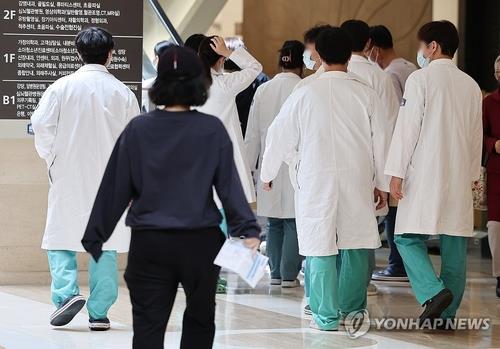 Gov't likely to accept university chiefs' request to lower med school enrollment quota
Gov't likely to accept university chiefs' request to lower med school enrollment quota -
 Looming weekly closure of major hospitals feared to worsen medical service crisis
Looming weekly closure of major hospitals feared to worsen medical service crisis -
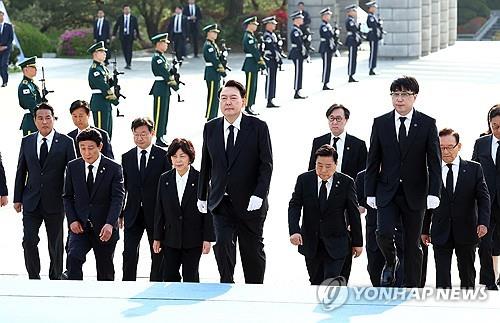 Yoon's approval rating sinks to lowest point since taking office
Yoon's approval rating sinks to lowest point since taking office
-
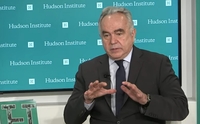 U.S. will take steps for three-way engagement on nuclear deterrence with S. Korea, Japan: Campbell
U.S. will take steps for three-way engagement on nuclear deterrence with S. Korea, Japan: Campbell -
 (LEAD) Hybe to file complaint against sublabel executives over internal conflict
(LEAD) Hybe to file complaint against sublabel executives over internal conflict -
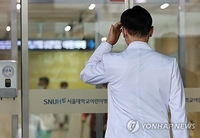 Looming weekly closure of major hospitals feared to worsen medical service crisis
Looming weekly closure of major hospitals feared to worsen medical service crisis -
 Author of ADOR's 'internal document' refutes allegations of spinoff plot
Author of ADOR's 'internal document' refutes allegations of spinoff plot -
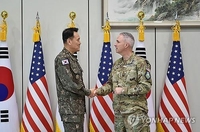 U.S. SPACECOM commander says N.K.'s satellite launch violates U.N. resolutions
U.S. SPACECOM commander says N.K.'s satellite launch violates U.N. resolutions
















